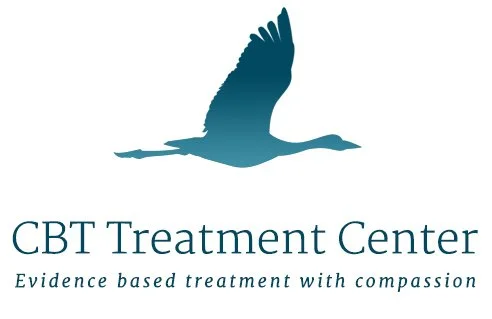
Anxiety Therapy for Children
Is Your Child Or Teen Suffering From The Effects Of Anxiety?
Has your child or teen become overly anxious and afraid of the world? Does incessant worry stand in the way of them achieving their goals and moving forward in life? Do you wish you knew how to help them manage their anxiety so they could enjoy being a kid again?
When your child feels anxious, their sense of safety disappears. Perhaps they have ruminating thoughts that keep them stuck in an endless loop of “what if” thinking. Whether it’s worrying over their math test the next day, a fear of what their friends think of them, or fretting about how they’ll perform at their next volleyball game, once the anxious thought appears, they can’t let it go.
Your teen may want to avoid situations they associate with being anxious. Maybe they’re no longer comfortable leaving home for too long, going to school, or trying new things. As you watch helplessly, your child’s life has started to shrink around them.
As A Parent, You May Feel Helpless
You are understandably worried that your child’s fears will hold them back from the rich and rewarding life you want for them. But it may seem like no matter what approach you take, nothing helps. If, for example, they don’t want to go to school, you may vacillate between giving in to their wishes and demanding they get up and face the day. But even when you concede and let them stay home, their anxiety doesn’t dissipate.
Thankfully, CBT therapy for anxiety is an effective treatment for children and teens. Working as a team with a supportive therapist can lead to meaningful changes in your teen’s thoughts and behaviors, bringing forth renewed hope for a future without anxiety.
Anxiety Affects One In Three Adolescents
According to the Anxiety and Depression Association of America (ADAA), “Anxiety is prevalent among adolescents, with nearly 32 percent of those ages 13–18 living with this condition.”[1]
Although anxiety is a survival instinct designed to help protect us from danger when we experience too much it can be detrimental to our mental and physical well-being. For children and teens, the signs of anxiety are commonly displayed by “poor school performance, problems with peers, substance use, psychosomatic illnesses, and low self-esteem.”[2]
Our “Safety First” Culture Comes With A Price
In today’s culture, ensuring our children’s safety has become one of the top priorities for parents. From car seats to kid-friendly retrofitted playgrounds to teaching children about “Stranger Danger,” creating safety is an overriding concern.
And while there are inarguably numerous benefits to keeping our children well-protected within their environment, an unforeseen byproduct of “safety first” has been the underlying fear that has subconsciously seeped into their minds. Seeking safety at all costs implies the world is inherently unsafe, and, as a consequence, fosters unspoken fears. These fears, in turn, can lead our children to become anxious or depressed.
When our child is anxious, its impact affects everyone in the family. If we don’t understand the underlying cause of their anxiety, we might grow increasingly frustrated by their behaviors. Sadly, this response can further alienate them which in turn can exacerbate their symptoms, creating an unhealthy cycle.
As a therapist who specializes in working with children and teens, I offer families hope and support to move beyond anxiety’s debilitating symptoms. By utilizing Cognitive Behavioral Therapy (CBT), your child can set achievable goals to help them overcome anxiety.
Therapy Can Help Your Child Understand And Manage Anxiety
When anxiety is all your child has known, they perceive life through a lens of uncertainty, worry, and fear. Therapy allows them to learn about anxiety disorders in a nonjudgmental space. By understanding how their brain works when they’re dealing with stressful situations and the difference between useful anxiety and excessive anxiety, they will learn how to tell themselves a different story when they face anxiety-inducing situations.
What To Expect In Sessions
I prefer to call myself Coach Nicole so your child better understands my role and how I’m here to help them. My approach is to work closely with parents throughout therapy so that you will know how to reinforce what your child learns in sessions. If your child is younger, you can expect to attend most sessions with them. And if your child is a teen and prefers more one-on-one sessions with me, you will still be looped into what their treatment goals for managing anxiety are and be able to reinforce them at home.
Once we understand the thoughts and beliefs that prevent your child from accomplishing what they want, we will collaborate to set goals and then work towards reaching these goals in and out of therapy. As your child begins to recognize patterns of behavior that impede them from achieving their goals, I will teach them helpful skills and tools to overcome anxious impulses that will enable them to succeed.
The goals we set in therapy will be specified for your child, aligned with their values, interests, and desires. With directive coaching, I will guide them to become aware of negative self-talk and teach them perspective-shifting techniques to help them realize they can approach situations with a different mindset.
When your child is invested in the smaller short-term goals we set, they will realize they dovetail into their grander future goals, such as traveling, getting a driver’s license, or attending college one day. With practice and commitment to the process, they will build mastery over situations that were once scary for them. Recognizing that worry is a bully in their mind and the bad things they expect to happen won’t happen, they’ll quell the anxious thoughts that have held them back from living the life they want.
The Modalities We Use
CBT is an evidence-based approach that has been found to be effective in the treatment of anxiety.[3] By targeting the three interconnected areas where anxiety takes hold—thoughts, feelings, and behaviors—CBT helps your child notice how new patterns of thinking can help them shift their actions and make different choices. We will also focus on how to address the anxiety that builds in the body, teaching relaxation skills, deep breathing, and meditation.
Although it’s tough to see your child struggle with mental health, the knowledge you gain with a counselor can provide you with a framework for understanding their behaviors and allows you to become an active participant in their healing. Working as a team, recovery from anxiety is possible.
But You May Still Be Wondering Whether Anxiety Therapy Is Right For You…
Isn’t treatment for anxiety time-consuming and expensive?
Our goal is to help your child make lasting change in a short amount of time. Throughout our sessions, we will work toward accomplishing the goals we created with your child, paving the way to changing the thoughts that fuel anxiety. What’s more, early intervention can reduce the potential that your child will need anxiety counseling later in life. Not only is getting anxiety disorder treatment for your child now more cost-effective, but they’ll also be happier and healthier sooner.
My child’s fears are so entrenched, that I doubt anxiety counseling will help them
Many of the children and teens I’ve worked with have experienced life-changing outcomes, conquering fears they never imagined they’d be able to overcome. Therapy will be tailored to their unique needs. We are equal partners in your child’s healing, working collaboratively to create a treatment plan that works for them and that you can reinforce at home.
We already tried anxiety counseling and it didn’t help my child.
If you’ve taken your child to therapy before and it didn’t help them manage their anxiety, it’s understandable that you’re reluctant to try counseling again. But I would encourage you to give it another chance and see how CBT for anxiety can make a difference. Working together, we will find ways to reduce anxiety by looking at the relationship between thoughts, feelings, and actions. The techniques used in CBT can help rewire the brain, reducing anxiety in the long run. Past studies done with MRI imaging have shown a difference in the brain structure following CBT treatment. [4]

Getting Your Child The Help They Need Can Change Their Life For The Better
With the help of a supportive anxiety counselor, you can empower yourself to help your child move beyond anxiety. To schedule a free consultation to learn more about anxiety therapy, please contact us.
https://adaa.org/understanding-anxiety/facts-statistics
https://www.psychologytoday.com/us/blog/liking-the-child-you-love/201601/the-rising-epidemic-anxiety-in-children-and-teens#:
https://pubmed.ncbi.nlm.nih.gov/29451967/
https://www.psychiatryadvisor.com/home/topics/anxiety/brain-scans-may-predict-efficacy-of-cbt-for-social-anxiety-disorder/




